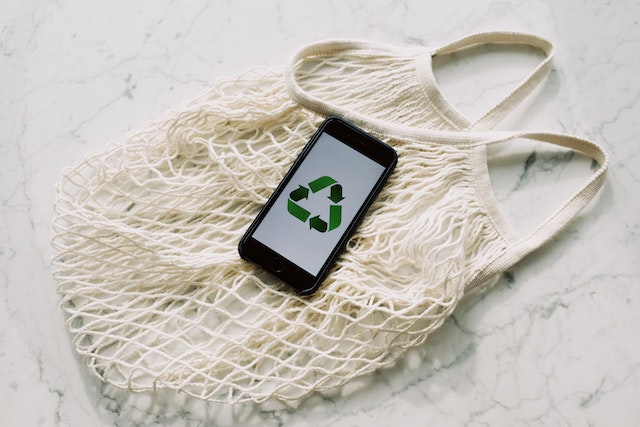While collective action is probably the most efficient way to achieve change in the realm of sustainability and climate targets, we cannot disregard the power and the need of individual action.
It is definitely more common, and to some extent, more obvious, to read about the need for collective action in sustainability. In fact, we are not strangers to this idea.
But it is also in our nature and values to push individual action forward and understand its importance as well as it limitations. We believe individuals hold a great power to achieve sustainability targets, and have the ability to create positive social impact through their unique contributions.

The role of individuals in sustainability
Sustainability awareness is on the rise, and so many people want to contribute to climate and social targets through their own individual actions. And although the ways in which people can contribute at an individual level are rather limited, they are nonetheless quite powerful.
We could state that individuals have great influence and responsibility in promoting or accelerating sustainability in three distinct realms: through their consumer habits, their lifestyle choices, and through civic engagement.
These three roles are key to advancing the environmental, social and economic targets we find in the journey towards sustainability and sustainability awareness.
Sustainable lifestyle and consumer habits
Consumer habits refer to the motivation behind the goods, services or ideas one person selects, buys, or chooses to ignore in order to satisfy its needs and demands.
But in order to order to make sustainable choices, this idea has to be integrated as a key value and criterion. In fact, making greener consumer decisions need to outweigh the convenience of choosing the opposite route.
In short, developing sustainable consumer habits take time, learning and understanding, it is a long-term commitment that comes from within. But once they are integrated in an individuals’ mindset and become habits, they can be exercised routinely.

Very much related and deriving from consumer habits, we find sustainable lifestyle choices as those activities or commitments individuals chose to participate in for a more responsible way of going about their lives.
For example, using public or green transportation, or choosing healthier and less environmentally impactful food diets.
Civic engagement
Civic engagement refers to the actions individuals take to be part of the solution of a complex problem that goes beyond their own personal lives or circumstances.
People involve themselves with some kind of sustainability project with attainable and measurable goals or targets. This could mean anything from local to national organizations, governments or other type of gatherings.
But whatever the cause or the means, civic engagement is about increasing public awareness and involvement in sustainability, social or political issues while encouraging public discourse.
Engage employees in the sustainability strategy
The power of individual action
We understand how the first thought that comes to mind when thinking about the ‘power’ of individual action is about the irrelevance or little impact one person can have on society, or on sustainability for that matter.
However, it is the accumulation of all those individual actions that overtime can have a great impact and help spark social or political movements for the protection of our planet and the rise of sustainability in public discourse. We cannot achieve sustainability without the active involvement of virtually every individual in society.

And although big companies or corporations, and governments, have a great responsibility on taking sustainable actions and developing the right policies or laws, individuals still hold a big influence and therefore impact on what the future of sustainability might look like.
Influence might be in fact one the most important aspects of this so calles ‘power’ of individual action. However small the impact of one person can be, that action can influence many other people and spark many other contributions, and so on.
Understanding our limitations
On the opposite side of things, individual action has its limitations, and we need to be aware of them in order to navigate them as best we can, and avoid those which are avoidable.
We wanted to talk about two distinct types of limitations individuals find when approaching sustainability, one refering to the complexity of sustainability and the other refering to personal barriers.
On one hand, sustainability problems or questions are very complex, and often interconnect many issues all at once. But what does this mean for individual action?

Mainly that it can difficult to approach a given problem in the correct way. Because of the interconnectedness of factors surrounding one specific problem, approaching one of the latter could mean harm for another, and so on.
In this regard, it is important to find an approach that takes into consideration the many systems and elements that conform a given sustainability issue. This could mean anything from awareness to education and having the right means to do so.
Lastly, we cannot opt out personal barriers in the attempt to live a more sustainable lifestyle. From tight schedules to economic and social resources, there are many obstacles along the way that prevent us from taking proper action. However, it is important to remember that there is always a way to make a change, in our own capacity, and which overtime will bring greater things.
Change can start anytime, anyhow
In DoGood we advocate for the importance of making small but meaningful changes in our everyday life in order to find purpose and a more healthy relationship with what is around us.
We also believe that working collectively can help us find that which alone may seem unattainable or useless. That is why we think the workplace is the perfect environment to find that collective eagerness to make a difference, both for the sustainability and purpose of the company and a more sustainable way of being for all employees.
Through our technology we help companies establish ESG impact objectives for employees in regards to the sustainability strategy of the company.
We are able to activate and track employees’ impact, creating engagement that translates into improved ESG metrics, reputational value and an overall positive impact for the environment and society.








